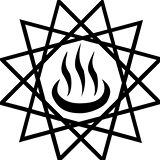(June 11) – Alexander of Macedon died in the year 323 BCE at the end of a campaign begun in 334 BCE to complete his father’s mission in Asia, the purpose of which was to punish Persia for wrongs committed during the Persian Wars over 100 years earlier. He was 33 at his time of death, but in his brief lifespan, he managed to accomplish what no other Greek had done before, which was to invade and conquer Persia and its many subject territories, including Egypt and all of what today we call the near Middle East (except for the Arab Peninsula) all the way east to India, uniting them under his kingship. Alexander is also known for sharing the dangers with his men, who adored him, and was gracious to those who surrendered, often allowing them to continue to govern under his oversight. During his military movements, he extended Greek culture, ideals and language across the eastern world, enriching other nations and ensuring that Greek became the international tongue for commerce and government until Roman times. He founded many cities, including several named Alexandria. Though historians of the time all the way up to the present differ on whether Alexander was a person to approve of or not, none of them dispute what he did or the influence he had on the civilized world. After his companion Hephaistion died in the fall of 324 BCE, Alexander returned to Babylon and became ill and died just a few months later, with plans to invade Arabia on his desk (Adkins and Adkins; Lendering).
Today, some Hellenic Reconstructionists choose to give Alexander hero honors annually on the date of his death. This is an optional practice, as even Alexander is reported to have said, when asked when he wanted to have divine honors, answered that they should do so, if they wanted, when they would be happy (Curtius 10.5.6). While Alexander may or may not have considered himself semi-divine, many discern how extraordinary he was in life and the contribution he made to Greeks and other people, and they perceive his action and life as heroic and deserving of recognition. To quote a member of Hellenion, “I believe he can show us humans strength and persistence while facing adversity. To follow our dreams. And to be open to new ideas and how to incorporate the changes into our lives” (private communication).
How to give hero honors. In antiquity, hero cults could be found throughout Greece. Usually, the hero was worshipped at a specific location, often in a way that is similar to how people honored their own deceased ancestors, except that with heroes, the entire community would honor the person. If you chose to honor Alexander on the date of his death, you might want to have a separate altar for him than for the gods, as hero worship is considered “chthonic” (earth based) not celestial. In ancient times, the location was often the site where the hero was buried, but not always (Ekroth). The hero, who is considered to be able to hear supplications, can receive hymns, prayerful requests— not as intermediaries between humans and gods but as spirits that affect the living world. They also received offerings and libations. The ancient practice involved libations of animal blood and burnt animal sacrifices (holocaust offerings) as well as other liquids. This practice changed over time to allow some of the meat to be distributed to those honoring the hero. Also, in earlier times, the offerings left at the site of worship, the heroon, were not shared or eaten, as with any offerings to the dead. Later practice involved sometimes involved a memorial meal, though not at the site of burial (Quinn, Ekroth). Today, we don’t offer animals or blood, but liquids of the sort usually libated to the dead, such as water, milk, oil, and sometimes wine (Panopoulos et al). These liquids are not poured, typically, but the libation vessel is tipped over and allowed to drain out upon the ground (inside, in a receiving vessel) and are called khoes. Small objects can also be offered to the hero, also barley and small cakes or biscuits.
Hellenion voted in 2018 to add the anniversary of the death of Alexander the Great to our official calendar.
Sources:
Adkins, Lesley and Roy A. Adkins. Handbook to Life in Ancient Greece. Oxford University Press, 1997, pp 42-44.
Curtius Rufus, Quintus. Historiarum Alexandri Magni Macedonis libri qui supersunt. Edmund Hedicke, in aedibus B.G. Teubneri, 1908. Perseus project.
Ekroth, Gunnel. “Heroes – Living of Dead? “The Oxford Handbook of Ancient Greek Religion, edited by E. Eldinow & J. Kindt, Oxford, 2015 pp 383 – 396.
Lendering, Jona. “Alexander’s City Foundations.” Articles on ancient history, Livius.org, 201; rev. 2018. Accessed December 18, 2018.
Panopoulos, Christos Pandion, Panagiotis Panagiotropoulos, Erymanthos Armyros, and Lesley Madytinou. Hellenic Polytheism: Household Worship. Translation by Rathamanthys Madytinos, Labrys, 2014. Print.
Quinn, Amy. “The ‘Cero Cult’ and the ‘Tomb Cult’ in early Greek Society.” The Trinity College Dublin Histories and Humanities Journal, vol 2, 2011, pp 119-126.
Watch the photo slideshow / video of the 2006 Libation to Alexander the Great by Proto-Demos tes Hagnes Persephones
